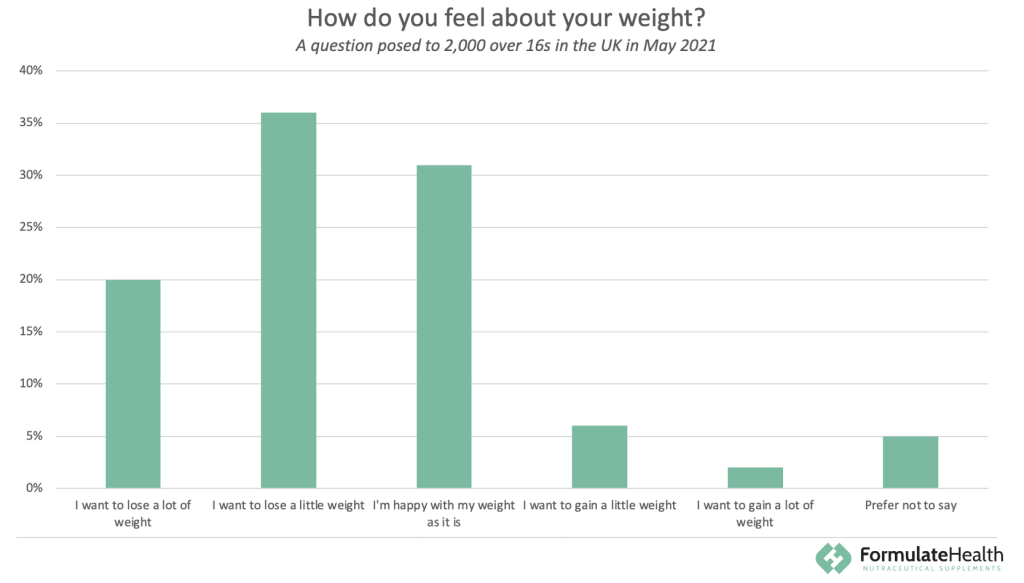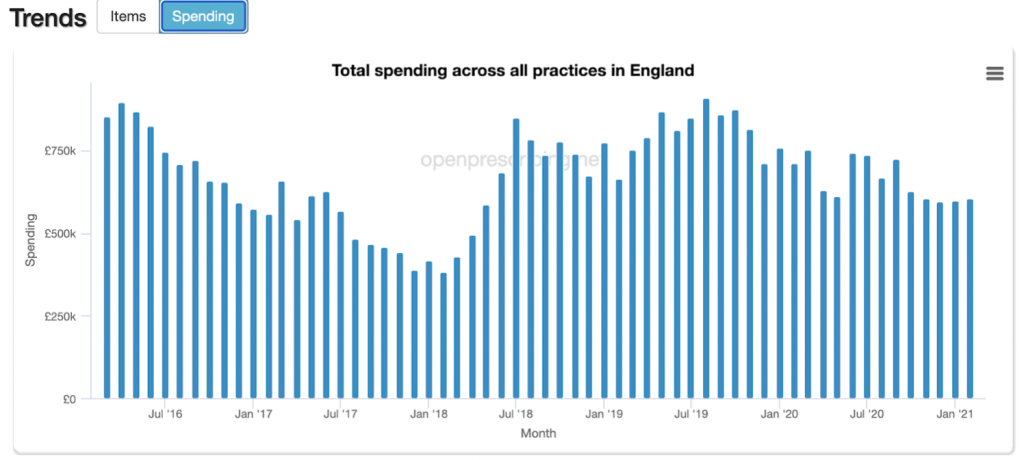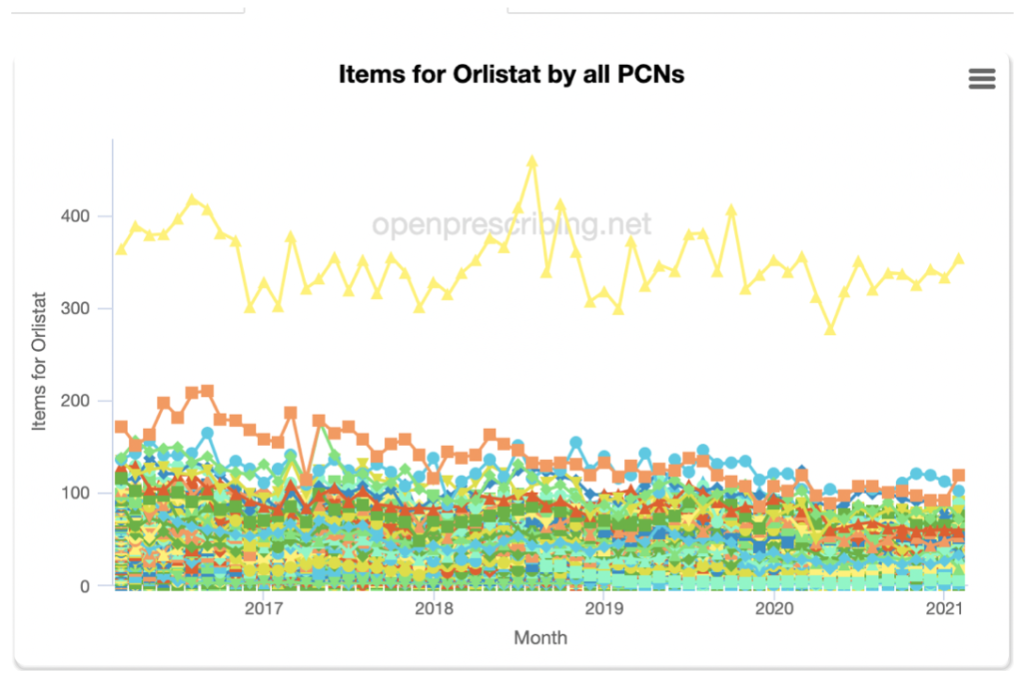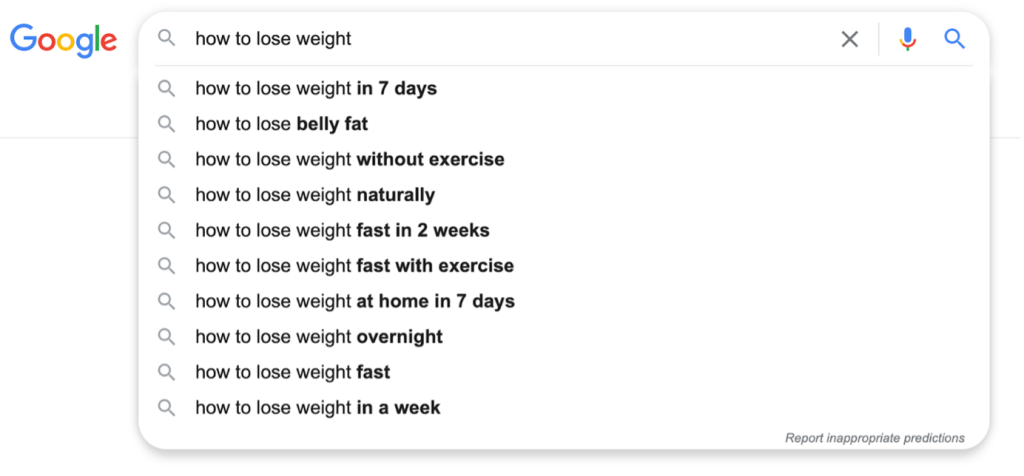Noom Versus Weight Watchers
There's no question that obesity is becoming a big problem in the UK. With over half of the UK population now classed as being overweight or obese, the number of related health problems such as diabetes and high blood pressure is also growing, which can lead to reduced life expectancy and increased pressure on the NHS.
In this article, we analyse the latest obesity statistics to find out:
- How many people are overweight or obese in the UK
- How much obesity is costing the NHS
- How Covid-19 has affected people's weight
- How many people are admitted to hospital as a result of obesity
Our Top Findings About Obesity in the UK
We've detailed all of our findings throughout. But if just want the bullet points, here are what we consider the most important UK obesity statistics.
- More than half of all UK adults (63%) are classed as being overweight or obese - that's over 35 million people.
- The NHS spent £8,167,383 on Orlistat in 2020 in England
- Orlistat is prescribed roughly once every two and a half minutes in England.
- One in five UK adults want to lose a lot of weight
- More than 4000 people a day search online for ways to lose weight fast.
- More than one million people were admitted to hospital with obesity-related problems in 2019/20
- Three quarters of hospital patients receiving treatment for obesity were female.
How many people want to lose weight?
With three national lockdowns in the space of one year restricting people's movements, closing gyms and encouraging people to stay at home, it's no surprise that many people have seen their weight increasing over the past year - which has knock-on effects on people's physical and mental health.
We conducted a survey of UK adults to find out how they feel about their weight after the last twelve months. Here's what we found:

More than half of us (56%) admit to wanting to lose weight, with one in five UK adults feeling that they need to lose a lot of weight.
Women are more likely to feel concerned about their weight than men, with six out of ten (61%) adult women in the UK feeling that they need to lose a little or a lot of weight, versus less than half of all adult men (49%).
Just under a third (31%) of all UK adults are actually happy with their weight.
Where are the UK's weight loss hotspots?
Northern Ireland tops the list, with 63% of adults here saying that they need to lose some or a lot of weight. This is closely followed by Scotland, where 61% of adults are concerned about weight loss.
In Greater London, less than half of adults (48%) feel that they are concerned about losing some weight.
Looking at the data at city level, Bristol and Glasgow top the list of places where people want to lose the most weight, with 63% of all adults here wanting to lose either a little or a lot of weight.
But in Newcastle, less than half of the people surveyed (47%) were concerned about shedding the pounds.
How does age affect weight loss?
The older we get, the more weight we feel we need to lose. Just over a third (35%) of 16-24 year olds we surveyed felt they needed to lose a little or a lot of weight.
But concern about our bodies really starts to grow from our mid-twenties onwards. Between the ages of 25-44, more than half of us (54%) feel we need to lose weight - and by the time we hit 45, more than 60% of people want to shed some pounds.
Obesity, Orlistat and the NHS - the numbers
Obesity is thought to affect around 1 in 3 UK adults. It's a term used to describe someone who is very overweight, with large amounts of body fat - and can lead to greater risks of heart disease, type 2 diabetes and some types of cancer.
Treatment often focuses on weight loss through healthy diet and exercise - but anti-obesity medicine can also help in some cases.
There's only one drug available on the NHS to treat obesity, and that's Orlistat.
We looked at the statistics around Orlistat prescriptions in England and found that:
- More than 20,000 prescription items for Orlistat are given out in England every month.
- That works out at about 645 items a day…
- Or roughly 27 per hour…
- Or once every two and a half minutes.

The number of monthly prescriptions for Orlistat has been on a roughly downward trend after peaking in June 2016. Although the number of prescription items has been going down, spending more than doubled between January 2018 and August 2019 - but average spend has since decreased and is now starting to level off once again.
Where in the UK spends the most on Orlistat?
The number of prescriptions for Orlistat in England varies greatly from region to region, with the North East and Yorkshire region having seen the highest number of prescriptions over the last five years, with the Midlands and London regions second and third respectively.
The south west and east of England areas saw the lowest spend when it comes to Orlistat.
Looking at the data at Primary Care Network (PCN) level shows that Barnsley sees a much higher number of Orlistat prescription items than anywhere else in England, followed by Norwich and south Southwark.

Bury saw the fewest prescriptions for Orlistat in 2020 .
Weight loss: let's Google that
The most important treatment for obesity is losing weight - but anyone who's tried to do this before knows how hard it can be.
Weight loss is often a long and difficult journey, so it's no wonder that people look to search engines in search of tips and support - and people's search habits can tell us a lot about our attitude towards weight loss.
Ever started typing something into Google and the search engine starts finishing your sentences for you? That "auto suggest" is based on what others before you have searched. In other words, it can tell us a bit about the most common searches.
Type in the 'How to lose weight...' into Google and five of the top 10 auto suggestions are related to losing weight quickly:

Indeed, using kwfinder.com, we discovered that 'lose weight fast' generated an average of 124,000 monthly searches in the UK over the last five years, with over three quarters of a million searches worldwide in the same period.
- We want to lose weight most at New Year and in the summer
It's no surprise these searches for 'lose weight fast' tend to peak in January after everyone's indulged at Christmas, and in the summer months, typically June and July (as the prospect of stepping into a summer bikini or trunks looms closer.
- We're increasingly concerned about our weight
The number of searches for 'lose weight fast' has shown a sharp upward trend at the beginning of 2021, with more than a million searches in March of this year. This could be linked to the coronavirus crisis, as people have become more aware of the link between obesity and having severe effects of Covid.
This growing concern is also reflected in the number of people trying to work out if they are overweight or not.
The search term 'Am I overweight?' has delivered an average of 4,500 searches per month in the UK over the past five years, and 19,700 worldwide based on kwfinder.
- We're searching a lot for diet plans
Many people find it easier to lose weight when following a set diet plan - and they're big business. Monthly searches for some of the UK's best-known weight loss providers turn up results in the hundreds of thousands.
| Search term | Number of UK monthly searches |
| Slimming World | 388,000 |
| Weight Watchers | 244,000 |
| Pinch of Nom | 187,9000 |
| Huel | 96,500 |
| Noom | 87,300 |
How many children and adults are obese in the UK?
Today, around 63% of all UK adults are classed as being overweight, and of these, half are living with obesity.
Incredibly, a third of all children leaving primary school are classed as being overweight, and one in five of these are living with obesity.
Obesity and Hospital Admissions - the Statistics
Obesity and related problems are putting increasing pressure on the NHS, with record hospital admissions in the last year.
In 2019-20, there were just over 1 million hospital admissions where obesity was a contributing factor - and over two thirds of these (64%) were women .
This was an increase of 17% on the year before and amounts to almost 150,000 more instances of people being taken into hospital over the course of a year.
The number of hospital admissions where obesity was the main cause actually fell by 3% to 10,780 in 2019-20, although this is likely to be due to a fall in the number of bariatric surgeries taking place during Covid-19.
Three quarters of patients (75%) admitted to hospital for obesity were female and 69% of patients were between the ages of 35 and 64.
How does obesity relate to deprivation?
Obesity is directly linked to deprivation. Children growing up in the most deprived areas of the UK are more than twice as likely to be classed as overweight or obese than in the least deprived areas.
This is also reflected in the number of hospital admissions. People living in the most deprived areas are over three times more likely to be admitted to hospital as a direct result of obesity than people in the least deprived areas.
| Hospital admissions... | Most deprived areas | Least deprived areas |
| … directly attributable to obesity | 31 per 100,000 population | 9 per 100,000 population |
| … where obesity is a factor | 2778 per 100,000 population | 1,139 per 100,000 population |
Methodology
We compiled this article using the following data sources:
- We commissioned a survey of 2,000 adults in the UK (provided by Censuswide) to ask them how they feel about their weight
- Data for Orlistat prescriptions taken from https://openprescribing.net/
- NHS National statistics on obesity 2021
- UK Government 'Tackling obesity strategy 2020'
For a copy of the raw survey data, a comment from our founder, Mina Khan, or further queries or clarifications, please get in touch.
Source: https://www.formulatehealth.com/blog/obesity-statistics-uk







Tidak ada komentar:
Posting Komentar